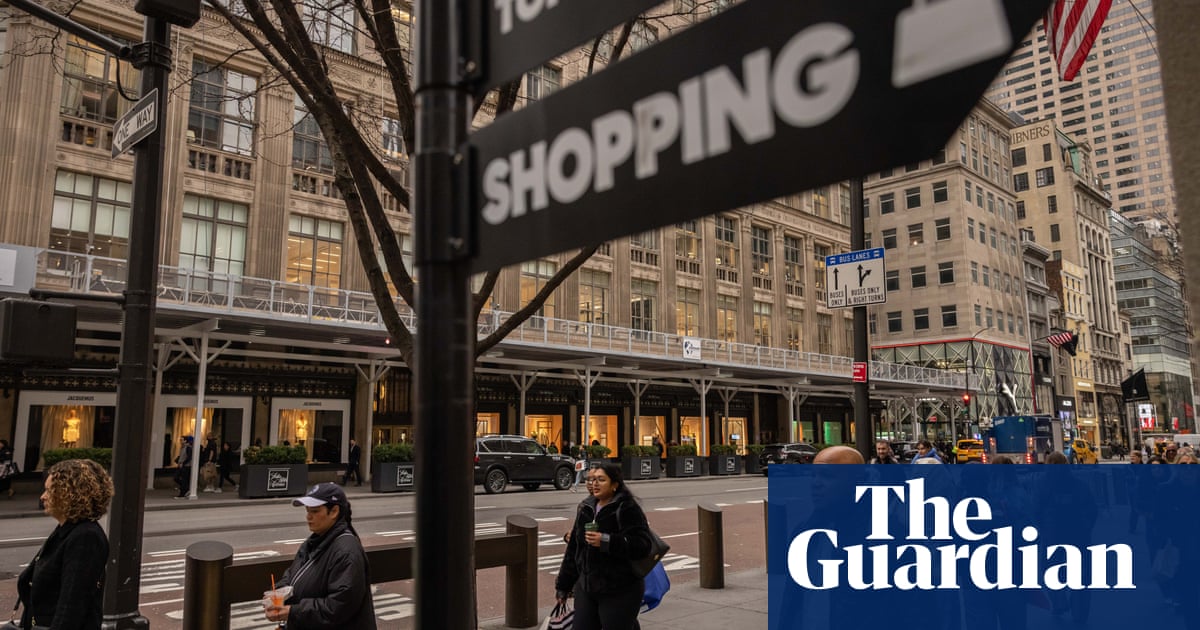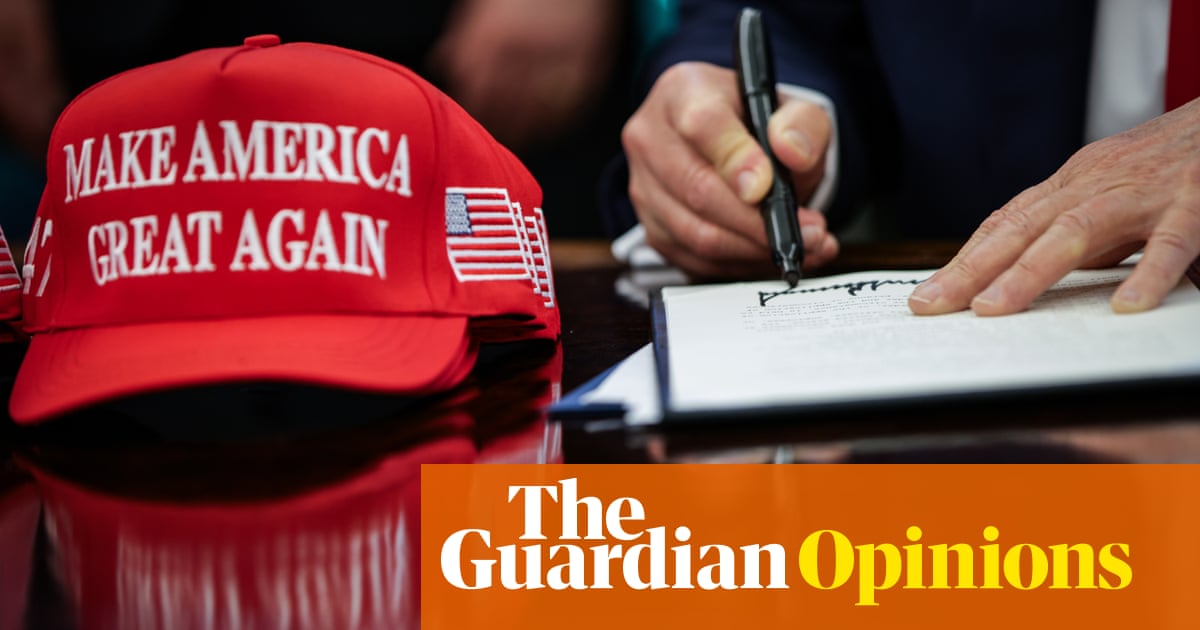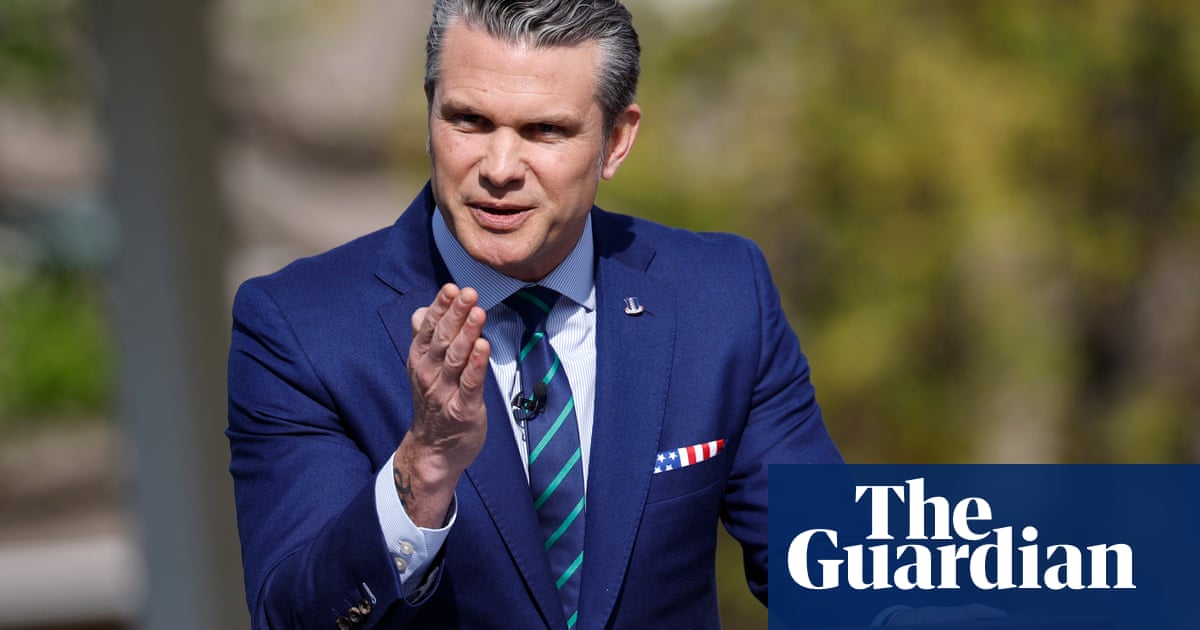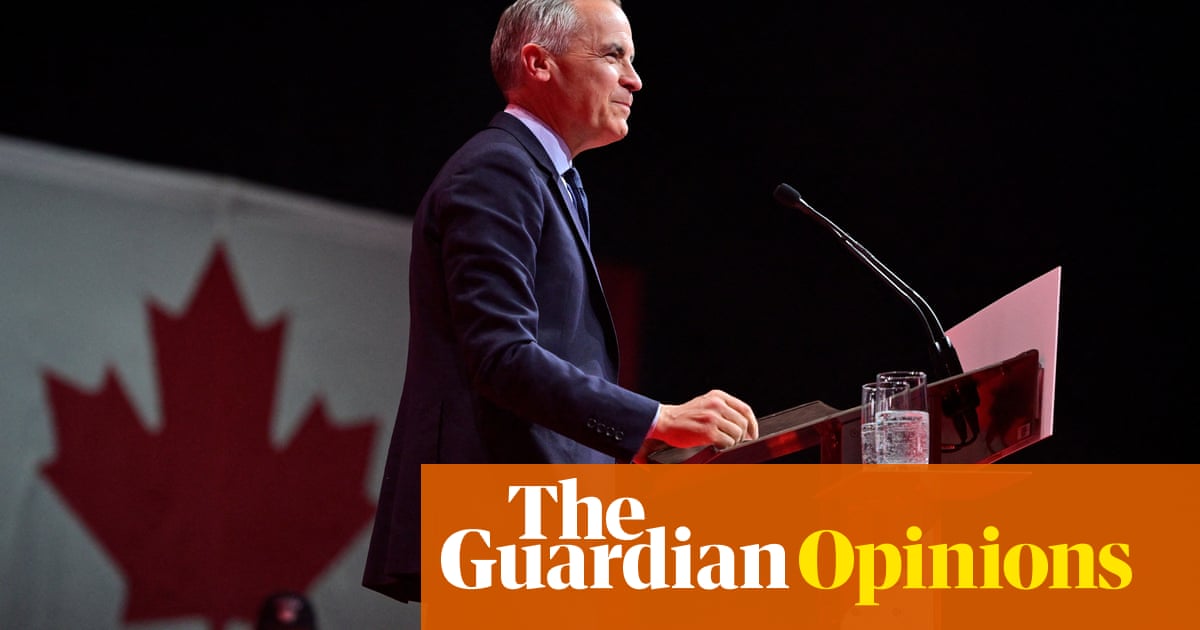In the 2024 election, Donald Trump eked out a narrow victory, by 1.5 percentage points nationally, the lowest popular vote margin in 56 years, since Richard Nixon’s wafer-thin win by 0.7 points in 1968. Trump claimed he had won an enormous historic mandate to impose a counterrevolution. “The American people have given us a mandate, a mandate like few people thought possible,” Trump boasted on 6 March in his address to the Congress.
His election rested on two principal issues, immigration and inflation. He demonized immigrants (“poisoning the blood” of the country), raised the bogeyman of transgender people, and racialized the Democratic candidate, Vice-President Kamala Harris, whom he claimed had decided herself she was Black. In the minds of the marginal voters who swung to him, however, immigration and inflation were conflated, factors impinging on their standard of living and economic security. Trump stigmatized migrants as the source of crime and cultural impurity, but swing voters mainly (and falsely) regarded them as economic competitors for jobs and government resources.
Trump’s formula in the first 100 days of his second term, and onward, is to reverse an extraordinary success into spectacular failure. His ironclad approach is that problems that don’t exist can be solved by policies that won’t work. On 19 October 2024, the Economist ran a cover story headlined “The envy of the world”. “The American economy has left other rich countries in the dust,” it reported. Jerome Powell, the chair of the Federal Reserve Board, had announced cuts to interest rates based on the economy approaching the fabled “soft landing” of low inflation with high employment. On the edge of achieving a glide path toward stable prosperity, he cautioned that the policies in place would have to be maintained to reach an equilibrium. “We haven’t completed that task,” he said.
On 2 April, Trump’s “liberation day”, he proclaimed astronomical tariffs on nearly every country in the world based on a nonsensical equation he got from his crackpot adviser Peter Navarro, whose academic work is studded with footnotes referencing the work of a non-existent scholar named Ron Vara, an anagram of Navarro’s name. Navarro, who served a prison sentence for contempt of Congress, refusing to testify about January 6, is considered an absurd figure among virtually all professional economists.
In response, the reality-based Powell felt compelled to announce that the US now faced a “challenging scenario” of “higher inflation and slower growth”, and that the Fed would halt rate cuts, which would increase inflation further. The “soft landing” has disappeared from sight.
Trump ruminated aloud that he wanted to fire Powell. The market tanked. Wall Street and CEOs freaked out. Trump reluctantly backed down, at least for the moment. The market went up. When Trump crashes, the market rises. But uncertainty rules the day. Trust has evaporated. His gyrations have made business planning impossible.
Trump’s feat is unprecedented in US economic history in the speed with which he has created the most profound harm. The only precedent was the Smoot-Hawley Tariff Act of 1930, passed by a Republican Congress and signed by President Herbert Hoover, raising rates by an average of 20%. The act provoked retaliation from other nations and deepened the Great Depression, which had begun with the stock market crash in September 1929. William Hague, the former British foreign minister, wrote in the London Times about Trump’s plan: “It makes Herbert Hoover look like a far-sighted and enlightened economist.”
Trump’s pattern is predictably monotonous. First, he claims omnipotence: “I alone can fix it.”
Then, if anything goes wrong, he disclaims responsibility. “I’m not involved,” he said, for example, about the wrongful expulsion of Kilmar Ábrego García. Then he blames others for the misfortune he has caused.
Trump inevitably squanders his inheritance. His behavior is repetitive. The combination of his malignant narcissism, grandiosity and impulsiveness led to his blowing the nearly half-billion dollars handed to him from Fred Trump, the founding father of the family fortune, in six flame-out bankruptcies. Trump’s first presidential term imploded in his incompetence when he was confronted with a true crisis in the Covid pandemic and exploded finally in his January 6 insurrection. Having re-entered office with the best economy in a generation, he has single-mindedly used every stick of dynamite to blow it up to usher in his proclaimed “golden age”. He has strangled the golden goose.
Meanwhile, Trump’s reckless illegality in dealing with immigration has caused a majority of the public to turn against him on the question that had been his strongest issue. His fall in support here is related to his contempt for due process, individual cases of specific outrage (abducting a two-year old US citizen and a four-year-old with cancer), and his disdain for the courts that frequently rule against him.
Trump’s spreading economic disaster, so clearly attributable to his own actions, decouples immigration as an economic cause. What do immigrants have to do with this, as the Financial Times reports: “Meanwhile, the Port of Los Angeles, the main route of entry for goods from China to the US, expects scheduled arrivals in the week starting May 4 to be a third lower than a year before. The number of ‘blank sailings’, where scheduled sailings from China are cancelled, are rising sharply. US-China air freight volumes have also plunged.”
Trump’s self-induced economic crisis drastically reduces the effectiveness of his demagogy while making his need for a scapegoat that much more urgent. He continues to propagandize about migrants, but if Trump’s policies are plainly the cause of economic pain, immigrants diminish in stature as a looming menace. Fewer people care whether they are eating the dogs and the cats.
The same cycle of demystification and disillusionment applies to Trump’s demonization of the “radical left elites”, the “deep state”, the “snooty” law firms, “radical” universities and students snatched off the streets and having legal visas voided for participating in pro-Palestinian protests. As the economy pulls back, it reveals his retribution for what it is: nothing but a personal vendetta.
Cui bono? Who benefits? The voters are not benefiting. His grudges do nothing to assist them. The tech billionaires at his side can no longer be depicted as representative of privileged Democrats. Elon Musk is greatly responsible for Trump’s election through his $270m contribution, and Trump is then responsible for Musk’s chainsaw destruction of government workers and services. Everything that Musk’s name is attached to is less popular. Musk’s prancing at a Republican rally in Wisconsin, donning a triangular cheese-head hat, and providing massive campaign money turned a state judgeship race into a referendum on him and Trump. The Democrat won by 10 points. Musk’s company Tesla lost 71% in profits this year amid consumer repulsion.
But, ultimately, Trump owns the damage. He authorized Musk’s wild ride. Musk exists as a function of Trump’s splenetic vengeance.
Trump’s instinct is to deepen and accelerate his retribution and propaganda. But the damage is already done, and the worst is ahead. In the shortest disorder possible, he has created the recessionary stagflation to come, which by its very nature is sticky and difficult to undo. He is angry at the Fed for not rescuing him by cutting interest rates. But if the Fed followed his dictate, inflation would only increase more. Trump’s frustration is that he is trapped within a failure of his own making. Even if he were to reverse himself overnight, it is too late. The effects of his uncertainty and instability have delivered a body blow to both supply and demand, shattered consumer confidence, upset the bond market, undermined the dollar, forced other nations to reorganize global trade and empowered China above all.
It’s all too late. Trump has destroyed Trumpism. “I alone can fix it.” Trump’s fix is in.
Trump invariably reverts to his tried-and-true method: he blames someone else. Yet Trump has not quite done the damage alone. He has had accomplices, without whom he could not have perpetrated his rapidly growing calamity. He required the complicity of the Republicans in the Congress. They are more than his handmaidens; they could have restrained him at any moment. They chose to abdicate their power to enable him.
Trump’s crusades have been made possible by his invocation of emergency powers. But his executive orders declaring emergencies are rooted in fictions. There is no real war to justify his use of the Alien Enemies Act. The Venezuelan migrant targets are not the instrument of the Maduro government, according to the US intelligence community. There is also no national security basis for Trump to grab all tariff authority from the Congress.
But rather than staging an intervention to assert their rightful constitutional authority, the Republicans have allowed Trump carte blanche for his rampage. In the House, the Republican leadership twice refused to allow a vote on a Democratic bill to repeal Trump’s emergency power for tariffs. They can no more escape responsibility than he can for the consequences.
Then the House Republican leadership refused to fund a delegation of Democratic members to inspect the El Salvador maximum-security prison where migrants have been jailed. But neither the continuing incarceration of Kilmar Ábrego García nor the indictment of a Milwaukee county judge will serve as a sufficient political distraction except on Fox News. The migrant and the judge did not declare a tariff war.
Trump’s foreign policy ventures have been rattling fiascos. He has his feigned efforts at negotiation over Ukraine, in which he echoed Russian demands. His attempt to bring China to heel in his trade war has led only to being ghosted while China has busily been making deals with our repelled allies to their advantage. Trump’s bellicose imperial ambitions for a nostalgic 19th-century colonialism have boomeranged. Trump’s threat to annex Canada as the 51st state has led to the sudden collapse of the Conservative party there and the phoenix-like ascent of the Liberal prime minister Mark Carney on widespread Canadian loathing for Trump. Vice-President JD Vance’s visit to Greenland, a semi-independent territory of Denmark, to stir up support for annexing it to the US was a farcical episode that met with an icy reception.
The Economist, which just months ago touted the supremacy of the US economy, featured a cover on 26 April of a bruised and bandaged American eagle. “He has already done lasting harm to America,” the magazine wrote about Trump’s first 100 days.
Trump arrives at his 100 days the most unpopular president at that point in the history of recorded polls. His limited mandate was to lower inflation and to deal legitimately with immigration, both of which were already largely resolved issues. He had only to do nothing or little. But self-control and clarity of vision are not among his traits.
Trump’s infernal war is with his designated enemies within. He is left to his kulturkampf, his culture war against the professions, the law firms, the media, the medical research centers, the universities, the arts and humanities, the libraries and museums, against reason itself and, as always, the judiciary. But he never had a mandate for his imposition of an authoritarian regime. “I have nothing to do with Project 2025,” he said during the campaign. Then he implemented its extremist agenda point by point.
Once again, inevitably, Trump finds himself back in court. Trump had signed 137 executive orders by 27 April, almost all facing legal challenges. According to the Just Security Litigation Tracker of the New York University law school, as of 26 April, 211 complaints had been filed against the Trump administration.
Trump is a recidivist. The convicted felon in the White House cannot help but break the law and attempt to justify his lawlessness. “He who saves his country does not violate any law,” Trump declared three weeks into his new administration. But he is not saving the country; he is wrecking it.
-
Sidney Blumenthal, a former senior adviser to President Bill Clinton and Hillary Clinton, has published three books of a projected five-volume political life of Abraham Lincoln: A Self-Made Man, Wrestling With His Angel and All the Powers of Earth

 German (DE)
German (DE)  English (US)
English (US)  Spanish (ES)
Spanish (ES)  French (FR)
French (FR)  Hindi (IN)
Hindi (IN)  Italian (IT)
Italian (IT)  Russian (RU)
Russian (RU)  4 hours ago
4 hours ago
























Comments